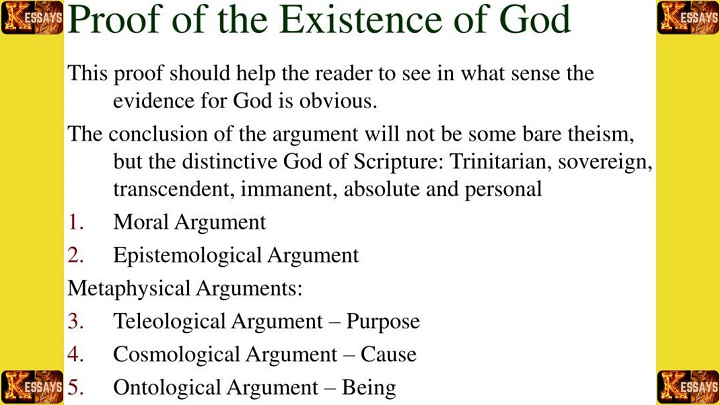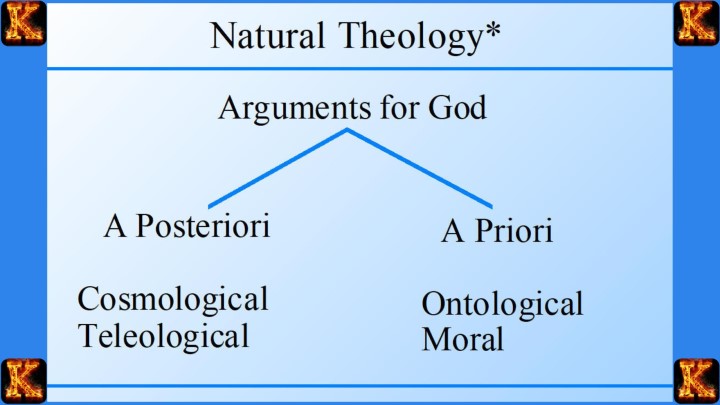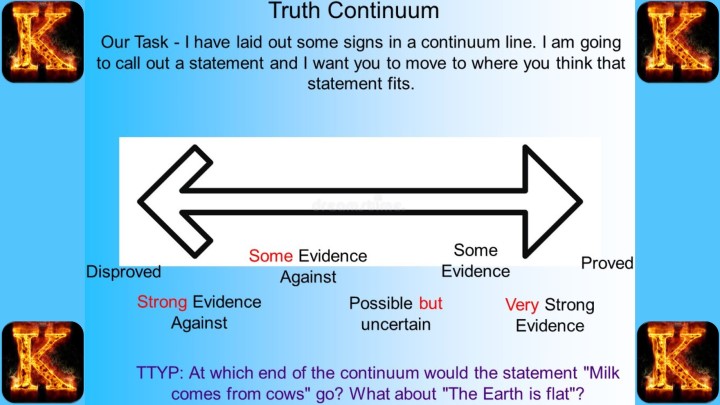The existence of God has long been debated in philosophy, theology, and science, with both theists and skeptics presenting arguments for their positions. One key perspective in this discussion is the absence of evidence argument. This argument states that the lack of empirical evidence or observable proof supporting the existence of God raises important questions about the strength of religious claims. In academic terms, it highlights issues such as skepticism, the burden of proof, the limits of scientific inquiry, and the nature of metaphysical reasoning.
This article examines the absence of evidence argument in detail. It explains what the argument means, why some scholars consider it a rational basis for doubt, and how theists respond by appealing to faith, transcendence, and non-empirical forms of knowledge. It also discusses related concepts in philosophical inquiry, including how empirical evidence is evaluated, the role of probability in belief formation, and the ongoing debate between naturalistic and metaphysical explanations. By the end, students will have a clear understanding of how the absence of evidence argument fits into the broader discourse on the existence of God.
Defining the Absence of Evidence Argument
1. Core Idea of the Argument
The absence of evidence argument states that if there is no empirical evidence supporting the existence of God, it is rational to question or reject belief in God. The central claim is that if God existed and interacted with the natural world, we would expect observable or measurable signs of this presence.
2. Role of Empirical Evidence
Proponents emphasize that empirical evidence is essential for evaluating the truth of any claim. They argue that religious claims should meet the same standard. Since no concrete or verifiable evidence has been found, the absence of data is viewed as meaningful and potentially indicative of non-existence.
3. Burden of Proof in Theism
Advocates assert that the burden of proof lies with those who claim that God exists. Because theism makes a positive existential claim, believers are expected to provide evidence. Without such evidence, withholding belief is seen as a rational response grounded in skepticism and philosophical inquiry.
4. Challenge to Faith-Based Belief
This argument questions the idea that belief in God should rely solely on faith or personal conviction. It maintains that if God is a real entity with influence in the world, there should be observable indicators that can be studied through empirical methods.
5. Theological and Philosophical Counterarguments
Critics of the absence of evidence argument claim that God is transcendent and not restricted to the natural world. They argue that empirical investigation is limited and may not be able to detect a divine being. From this perspective, the absence of empirical evidence does not count against theism.
6. Non-Empirical Forms of Knowledge
Theologians suggest that God can be known through faith, spiritual experience, and personal revelation. These experiences are presented as valid forms of knowledge that do not rely on empirical verification. Critics of the argument assert that these forms of evidence cannot be dismissed simply because they are subjective.
7. Limits of Empirical Inquiry
Opponents argue that not all truths can be determined through empirical science. Concepts such as consciousness, morality, and meaning are often explored through philosophy and theology rather than observation. They claim that the absence of empirical evidence should not automatically be interpreted as evidence of absence.
8. Scientific Perspectives
Some scientists caution that the absence of observable data is not equivalent to disproving a claim. Science may be limited in its ability to study metaphysical or supernatural subjects. Therefore, the fact that science cannot detect God does not conclusively indicate that God does not exist.
9. Bayesian Reasoning and Probability
Bayesian reasoning offers a probabilistic way to analyze the argument. It suggests that the absence of evidence can count as evidence of absence when one would expect evidence if the claim were true. However, applying Bayesian analysis to God’s existence is difficult because it depends heavily on subjective prior probabilities influenced by personal belief systems.
10. Overall Significance of the Argument
The absence of evidence argument encourages students to think critically about evidence, belief, and the limits of human knowledge. It raises important questions about the relationship between empirical evidence and religious faith, and it highlights the broader philosophical inquiry surrounding theism and skepticism.
Read Also: Per Patient Day System in Tackling Nurse Burnout
Skepticism and the Burden of Proof
The burden of proof lies with those making the claim.
In philosophical inquiry, the burden of proof requires that anyone making a positive claim must provide evidence to support it. Skeptics apply this principle to theism by arguing that those who claim that God exists are responsible for offering empirical evidence or logical justification. Without such evidence, it is reasonable for others to withhold belief.
Skepticism supports withholding belief until evidence is provided.
Skepticism emphasizes critical evaluation and the need for empirical verification. Skeptics argue that in the absence of empirical evidence for God, it is rational to remain uncertain or reject the claim. This position reflects the idea that beliefs should be supported by observable, testable evidence rather than assumption or tradition.
Extraordinary claims require stronger evidence.
Since the existence of a divine being carries significant implications for reality and human life, skeptics argue that the claim is extraordinary and therefore demands equally strong evidence. They maintain that if God interacts with the natural world, some form of empirical evidence should be detectable.
Absence of evidence is not always evidence of absence.
Some philosophers note that the lack of empirical evidence does not conclusively disprove God’s existence. There may be reasons why evidence is unavailable or inaccessible. Skeptics acknowledge this possibility but still argue that without adequate evidence, suspension of belief remains the most rational stance.
Theists respond by appealing to non-empirical forms of justification.
Supporters of theism often counter skepticism by arguing that faith, spiritual experiences, and personal revelation offer meaningful forms of evidence. They suggest that divine reality may not be accessible through empirical methods and that subjective encounters can provide legitimate grounds for belief.
This section explains how skepticism and the burden of proof shape the absence of evidence argument. Skeptics stress the need for empirical evidence before accepting claims about God, while theists emphasize faith and subjective experience as alternative sources of justification. The debate highlights the tension between empirical standards of evidence and non-empirical approaches within discussions about the existence of God.

Theological Perspectives and Responses
Theists argue that God transcends empirical observation.
Many theologians maintain that God exists beyond the physical world, so empirical evidence cannot fully capture or verify divine reality. This view holds that scientific methods, which rely on observation and measurement, are limited when applied to metaphysical questions.
Faith is presented as a valid source of knowledge.
In many religious traditions, faith is understood as a pathway to truth that does not depend on empirical evidence. Believers argue that faith allows individuals to form a deep conviction about God’s existence and nature, even when empirical verification is not possible.
Personal revelation is offered as experiential evidence.
Theists often describe experiences in which they feel they have received insight, guidance, or communication from God. These personal revelations are viewed as meaningful evidence within a theistic framework, although they remain subjective and cannot be externally verified.
Mystical encounters contribute to theistic understanding.
Mystical or spiritual experiences, marked by feelings of unity, transcendence, or connection with the divine, are considered another way of knowing God. Theologians argue that these experiences provide awareness of a reality that lies beyond empirical investigation.
Theism emphasizes the limits of empirical evidence.
Theological perspectives highlight that empirical evidence cannot address every aspect of human experience. They argue that philosophical inquiry into God must incorporate metaphysical reasoning, subjective experience, and spiritual insight, not only empirical methods.
Critics challenge the reliance on subjective experience.
Opponents argue that faith, personal revelation, and mystical encounters vary widely across cultures and religions, leading to conflicting claims. They maintain that subjective experiences alone cannot establish a universal truth about God’s existence.
This section explains how theism responds to the absence of evidence argument by emphasizing the transcendence of God, the role of faith, and the value of personal and mystical experiences. These perspectives argue that empirical evidence is not the only path to knowledge. Critics counter that subjective experiences cannot reliably establish the existence of God, which keeps the debate open within philosophical inquiry.
Read Also: Applied Behavior Analysis
The Limits of Empirical Inquiry
Empirical evidence cannot address all forms of human experience.
Critics argue that empirical inquiry focuses on what can be observed and measured, but many meaningful human experiences, such as religious or metaphysical insights, exist outside this scope. These experiences involve consciousness, emotion, and personal perception, which cannot always be quantified.
Metaphysical and spiritual phenomena fall beyond scientific investigation.
Empirical investigation studies the natural world, while theism often concerns realities that transcend it. Critics maintain that spiritual or mystical experiences, which are central to many belief systems, cannot be fairly evaluated using scientific methods alone.
Scientific inquiry has methodological limits.
Science depends on testable hypotheses, available technology, and current knowledge. Critics emphasize that the absence of empirical evidence may reflect these limitations rather than the nonexistence of God or other metaphysical realities.
The absence of empirical evidence is not necessarily evidence of absence.
Critics argue that a lack of observable data does not automatically invalidate the existence of God. They point to personal revelation, spiritual encounters, and subjective insights as meaningful forms of evidence within philosophical and theological inquiry.
Sole reliance on empirical evidence may produce an incomplete worldview.
According to critics, restricting truth to empirical verification overlooks important aspects of reality, such as moral values, aesthetic judgment, and subjective consciousness. They argue that philosophical inquiry must consider multiple sources of knowledge to fully understand human existence.
This section explains why some scholars challenge the absence of evidence argument by highlighting the limits of empirical inquiry. They argue that empirical evidence cannot fully evaluate metaphysical questions, spiritual experiences, or subjective aspects of reality. As a result, the absence of empirical evidence does not automatically undermine theism or religious belief. Critics advocate for a broader approach to knowledge that includes empirical, philosophical, and experiential dimensions.

Scientific and Philosophical Considerations
Science cautions against equating absence of evidence with evidence of absence.
Many scientists argue that a lack of empirical evidence for God does not automatically count as evidence that God does not exist. They note that scientific inquiry investigates natural phenomena, not metaphysical or supernatural claims.
Scientific inquiry has methodological limits.
Science relies on observation, experimentation, and testable hypotheses. Because these methods focus on the natural world, they cannot fully assess questions related to theism, metaphysics, or the supernatural. As a result, the existence of God falls outside the range of what scientific tools can verify.
Theism raises questions beyond empirical investigation.
From the scientific perspective, the absence of empirical evidence does not invalidate the possibility of a higher power. Instead, it reflects the fact that God, as understood in many religious traditions, is not a subject that scientific inquiry is designed to measure.
Philosophical inquiry expands the discussion.
Philosophers argue that the question of God’s existence requires broader forms of reasoning. They examine concepts such as knowledge, reality, and causation and consider classical arguments including the cosmological, ontological, and teleological arguments. These approaches address the rationality of theism beyond empirical evidence alone.
Philosophy offers alternative ways of evaluating belief.
Some philosophers hold that belief in God can be supported through logical reasoning, rational intuition, or metaphysical analysis. Others argue that empirical evidence remains essential. This diversity shows that philosophical inquiry engages multiple routes to understanding claims about God.
This section explains how scientific and philosophical perspectives contribute to the absence of evidence debate. Scientists emphasize that empirical evidence cannot fully address metaphysical questions, while philosophers provide additional methods for evaluating theism through reasoning and conceptual analysis. Together, these perspectives show that empirical evidence alone cannot conclusively resolve the question of God’s existence.
Read Also: A Good Man is Hard to Find
Bayesian Reasoning and the Absence of Evidence
Bayesian reasoning provides a framework for evaluating evidence.
Bayesian reasoning allows individuals to assess how evidence—or the lack of it—affects the probability of a hypothesis. In the context of theism, it helps examine how the absence of empirical evidence for God might influence beliefs about His existence.
Prior probabilities reflect initial beliefs.
In Bayesian analysis, prior probabilities represent an individual's initial assumptions about the likelihood of a claim being true. When applied to the question of God, prior probabilities are shaped by personal experiences, cultural upbringing, philosophical inquiry, and religious traditions. These subjective factors make it difficult to establish universally agreed-upon priors.
New evidence updates beliefs.
Bayesian reasoning requires adjusting prior probabilities based on available evidence to form posterior probabilities. In the absence of empirical evidence for God, individuals update their beliefs differently depending on how much weight they give to the lack of evidence. This means that the same absence of evidence can lead to different conclusions for different people.
Absence of evidence does not always equal evidence of absence.
Whether the absence of evidence counts as evidence of absence depends on the prior probabilities and the context. If a person’s initial beliefs strongly favor the existence of God, the lack of empirical evidence may not significantly alter their belief. Conversely, if the initial probabilities are low, the absence of evidence may reinforce skepticism.
Bayesian reasoning can incorporate non-empirical evidence.
Beyond observable data, Bayesian reasoning can include subjective experiences, personal revelation, and faith as forms of evidence. These elements contribute to the assessment of probabilities, acknowledging that belief in God often relies on more than empirical verification.
Bayesian reasoning provides a structured way to analyze the absence of evidence argument. It highlights that the absence of empirical evidence may influence belief depending on prior probabilities, but it does not automatically disprove God’s existence. This approach also allows for integrating subjective experiences and philosophical inquiry, offering a nuanced perspective on theism and the rational assessment of belief.

The Paradox of Faith
Faith involves belief without empirical evidence.
Faith is central to many religious traditions and often requires believing in the absence of observable proof. It relies on personal conviction, spiritual experiences, or religious teachings rather than empirical verification. Proponents of faith argue that it offers a valid pathway to knowledge that extends beyond what can be measured or directly observed.
Faith provides a form of subjective evidence.
Individuals with faith often draw on personal experiences, spiritual encounters, or revelations as sources of certainty. These subjective experiences serve as a form of evidence for believers, even when they cannot be verified through scientific or empirical means. Faith allows individuals to engage with the divine on a personal level, shaping their understanding of theism and their relationship with God.
Religious teachings and philosophical frameworks support faith.
Religious texts, doctrines, and traditions offer explanations, guidance, and narratives that reinforce belief in God. These teachings provide a philosophical and moral framework that helps individuals interpret their experiences and make sense of their faith in the absence of empirical evidence.
Critics highlight the limits of faith without empirical support.
Skeptics argue that relying solely on faith can lead to irrational or unfounded conclusions. They suggest that faith without empirical evidence may perpetuate dogma, superstition, or cognitive bias, potentially limiting critical thinking and philosophical inquiry. Without verification, they argue, belief can become an intellectual dead-end.
Faith complements rather than replaces reason.
Proponents contend that faith does not reject rational thought but offers a complementary approach to understanding reality. It addresses questions of meaning, purpose, and transcendence that lie beyond the scope of empirical investigation. Faith allows individuals to explore deeper truths about existence and the divine that may not be accessible through observation or scientific inquiry alone.
The role of faith varies across traditions and individuals.
Faith is practiced and interpreted differently across religions and personal beliefs. Some may adopt unwavering conviction, while others engage in a more reflective or questioning approach. The balance between faith, empirical evidence, and philosophical inquiry differs, highlighting the diversity of theistic perspectives.
The paradox of faith arises from its reliance on belief without empirical evidence. Faith draws on personal conviction, subjective experience, and religious teachings to provide knowledge and understanding that surpass observable proof. While critics question its rationality, faith remains a significant avenue for exploring theism, purpose, and the transcendent. Its interpretation and significance vary across religious traditions and individual perspectives, reflecting the complex interplay between belief, evidence, and philosophical inquiry.


Comments are closed!